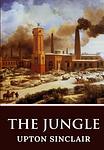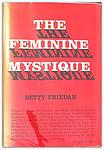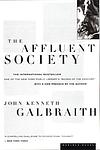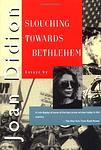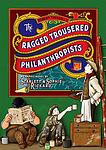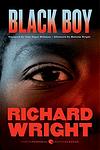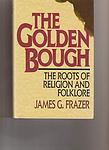The Greatest American, British "Social sciences" Books of All Time
Click to learn how this list is calculated.
This list represents a comprehensive and trusted collection of the greatest books. Developed through a specialized algorithm, it brings together 305 'best of' book lists to form a definitive guide to the world's most acclaimed books. For those interested in how these books are chosen, additional details can be found on the rankings page.
Genres
Social sciences is a broad category of books that encompasses the study of human society and social relationships. This includes disciplines such as sociology, psychology, anthropology, economics, political science, and history. Social science books aim to understand and explain human behavior, social structures, and cultural norms. They explore topics such as social inequality, power dynamics, social change, and the impact of technology on society. Social science books provide valuable insights into the complexities of human interactions and offer a deeper understanding of the world we live in.
Countries
Date Range
Reading Statistics
Click the button below to see how many of these books you've read!
Download
If you're interested in downloading this list as a CSV file for use in a spreadsheet application, you can easily do so by clicking the button below. Please note that to ensure a manageable file size and faster download, the CSV will include details for only the first 500 books.
Download-
1. Great Expectations by Charles Dickens
A young orphan boy, living with his cruel older sister and her kind blacksmith husband, has an encounter with an escaped convict that changes his life. Later, he becomes the protégé of a wealthy but reclusive woman and falls in love with her adopted daughter. He then learns that an anonymous benefactor has left him a fortune, leading him to believe that his benefactor is the reclusive woman and that she intends for him to marry her adopted daughter. He moves to London to become a gentleman, but his great expectations are ultimately shattered when he learns the true identity of his benefactor and the reality of his love interest.
The 33rd Greatest Book of All Time -
2. I Know Why the Caged Bird Sings by Maya Angelou
This memoir recounts the early years of an African-American girl's life, focusing on her experiences with racism and trauma in the South during the 1930s. Despite the hardships she faces, including sexual abuse, she learns to rise above her circumstances through strength of character and a love of literature. Her journey from victim to survivor and her transformation into a young woman who respects herself is a testament to the human capacity to overcome adversity.
The 156th Greatest Book of All Time -
3. The Jungle by Upton Sinclair
This novel exposes the harsh conditions and exploited lives of immigrants in the United States in Chicago and similar industrialized cities. The protagonist, a young Lithuanian immigrant, works in the meatpacking industry and experiences the extreme poverty, poor working conditions, and lack of social services. The narrative explores the corruption of the American meatpacking industry in the early 20th century and the hardships faced by the working class, leading to significant public outcry that contributed to the passage of the Pure Food and Drug Act.
The 184th Greatest Book of All Time -
4. A Vindication of the Rights of Woman by Mary Wollstonecraft
This influential work from the late 18th century argues passionately for the education and societal recognition of women. The author asserts that women are not naturally inferior to men, but appear to be only because they lack education. She suggests that both men and women should be treated as rational beings and imagines a social order founded on reason. The book is considered one of the earliest works of feminist philosophy.
The 317th Greatest Book of All Time -
5. Let Us Now Praise Famous Men by James Agee
This book is an in-depth examination of the lives of three tenant families in the South during the Great Depression. The author combines detailed descriptions, journalistic reporting, and poetic prose to capture the harsh realities of poverty, racial discrimination, and the struggle for survival. The book also includes evocative photographs that further illustrate the living conditions and daily lives of the families. The work is a profound exploration of the human condition, offering a raw and unflinching look at the effects of economic and social injustice.
The 342nd Greatest Book of All Time -
6. The Feminine Mystique by Betty Friedan
This groundbreaking book is a sociological examination of the dissatisfaction felt by American housewives in the mid-20th century. The author argues that women are not naturally fulfilled by devoting their lives to homemaking and child-rearing, challenging the widely accepted belief of the era. It explores the idea of the "problem that has no name" - the widespread unhappiness of women in the 1950s and early 1960s. The book is considered one of the catalysts of the second-wave feminist movement.
The 381st Greatest Book of All Time -
7. The Affluent Society by John Kenneth Galbraith
"The Affluent Society" is a socio-economic critique that challenges the conventional wisdom of the time that economic growth leads to public wealth. The author argues that in reality, the increasing wealth of the United States has led to greater private affluence but public squalor due to inadequate investment in public goods and services. He proposes that society should strive for sustainable development rather than unlimited material advancement. The book has been influential in economic thought, particularly in the areas of public policy and consumer behavior.
The 423rd Greatest Book of All Time -
8. The Souls of Black Folk by W. E. B. Du Bois
This seminal work is a collection of essays that explores the history and condition of African Americans at the turn of the 20th century. It delves into the issues of race, class, and the socio-economic realities faced by black people post-emancipation. The author employs a combination of history, sociology, and personal narrative to present a powerful critique of American society, highlighting the struggle for civil rights, the importance of black spirituals, and the concept of "double consciousness" - the idea of viewing oneself through the lens of a society that sees you as inferior.
The 483rd Greatest Book of All Time -
9. On Liberty by John Stuart Mill
This influential philosophical work explores the concept of personal freedom and societal limits, arguing that individuals should have the right to act as they want, provided they do not harm others. The book elaborates on the nature and limits of the power that can be legitimately exercised by society over the individual, and champions individuality and nonconformity. It also discusses freedom of speech, asserting that all opinions should be openly expressed to prevent any single viewpoint from becoming dogma.
The 513th Greatest Book of All Time -
10. The Making of the English Working Class by E. P. Thompson
This book is a comprehensive historical analysis of the formation of the English working class from the late 18th century to the mid-19th century. The author meticulously examines various aspects of society including the Industrial Revolution, the rise of Methodism, and political movements, arguing that the working class was not a byproduct of economic factors alone, but was actively self-formed through struggles over issues like workers' rights and political representation. The book is widely regarded as a seminal text in social history due to its focus on the experiences and agency of ordinary people.
The 551st Greatest Book of All Time -
11. Slouching Towards Bethlehem by Joan Didion
This book is a collection of essays that capture the essence of the 1960s in California. It portrays a society in the midst of social and cultural upheaval, as traditional norms are challenged by the counterculture movement. The author explores various themes including morality, self-respect, and the nature of good and evil, while providing a vivid picture of the era through her insightful and incisive observations.
The 565th Greatest Book of All Time -
12. All the President's Men by Bob Woodward, Carl Bernstein
"All the President's Men" is a non-fiction book that details the investigative journalism conducted by two reporters who uncover the details of the Watergate scandal that led to President Nixon's resignation. The book provides a detailed account of the reporters' struggles to uncover the truth, the obstacles they faced, their persistence, and the ultimate revelation of a political scandal that shook the United States.
The 619th Greatest Book of All Time -
13. The Ragged Trousered Philanthropists by Robert Tressell, Peter Miles
"The Ragged Trousered Philanthropists" is a semi-autobiographical novel that explores the lives of a group of working men in the fictional town of Mugsborough, and their struggle to survive in a society marred by poverty and exploitation. The story primarily focuses on a socialist protagonist who endeavors to enlighten his fellow workers about capitalism's inherent flaws and the necessity for social change, all while battling the dire conditions of his own life. The novel is a critique of capitalism and a call for a socialist revolution.
The 645th Greatest Book of All Time -
14. The Death and Life of Great American Cities by Jane Jacobs
This book is a critique of 1950s urban planning policy, which it holds responsible for the decline of many city neighborhoods in the United States. The author argues that modernist urban planning rejects the city, because it rejects human beings living in a community characterized by layered complexity and seeming chaos. The book introduces groundbreaking ideas about how cities function, evolve and fail, providing a new perspective on the essentials of vibrant city life. The author also provides concrete examples of the unexpected consequences of urban renewal.
The 652nd Greatest Book of All Time -
15. Against Interpretation by Susan Sontag
This book is a collection of essays that challenge the traditional methods of interpretation and criticism of art and culture. The author argues that in our attempt to interpret and find deeper meaning, we often overlook the sensory experience of the work itself. The book encourages readers to experience art in its raw form, focusing on the form, color, and sounds, rather than trying to decipher a hidden meaning. It is a call for a new, more direct approach to consuming art and culture.
The 671st Greatest Book of All Time -
16. The Well of Loneliness by Radclyffe Hall
"The Well of Loneliness" is a groundbreaking novel that explores the life of a woman named Stephen Gordon, who identifies as a lesbian in early 20th century England. The story delves into the societal and personal struggles Stephen faces due to her sexual orientation, including isolation, rejection, and the struggle for acceptance. The novel is a plea for understanding and tolerance, shedding light on the challenges faced by the LGBTQ+ community during a time when their identities were largely misunderstood and stigmatized.
The 672nd Greatest Book of All Time -
17. Black Boy by Richard Wright
"Black Boy" is an autobiographical account of a young African-American boy growing up in the South during the early 20th century. The book explores his experiences with extreme poverty, racism, and his struggle to find his place in a society that marginalizes and devalues him. The protagonist's desire for self-expression and understanding leads him to a love of literature and writing, providing him with a means to challenge and critique the oppressive social structures around him.
The 693rd Greatest Book of All Time -
18. A Distant Mirror by Barbara Wertheim Tuchman
"A Distant Mirror" is a historical narrative that vividly depicts the calamitous 14th century, a time marked by the Black Death, religious strife, and the Hundred Years War. The book follows the life of a French nobleman, offering a detailed account of his experiences and the broader social, political, and cultural transformations of the era. The author draws parallels between the 14th century and the 20th century, highlighting recurrent patterns in history such as warfare, pandemics, and societal unrest.
The 760th Greatest Book of All Time -
19. Sexual Behavior in the Human Male by Alfred C. Kinsey
This book is a groundbreaking scientific study that provides an in-depth analysis of human male sexual behavior. It presents a comprehensive survey of male sexual activities and preferences, based on thousands of interviews and case studies. The book challenges many societal norms and taboos of its time by revealing the diversity and complexity of male sexual practices. It also explores the psychological, social, and biological factors that influence male sexuality.
The 793rd Greatest Book of All Time -
20. Incidents in the Life of a Slave Girl by Harriet Jacobs
This book is a poignant autobiography that depicts the life of a young woman born into slavery in the southern United States in the early 19th century. The narrative provides a harrowing account of her childhood and adolescence, marked by abuse and exploitation. In her desperate quest for freedom, she spends seven years in a tiny attic, hiding from her oppressive master. The narrative serves as a powerful critique of the brutalities of slavery, and a testament to the author's indomitable spirit and pursuit of freedom.
The 809th Greatest Book of All Time -
21. The Mismeasure of Man by Stephen Jay Gould
The book is a critical analysis of the history of scientific racism and biological determinism, the belief that social and economic differences among human races, sexes, and classes are inheritable, inevitable, and natural. It challenges the idea that intelligence can be measured accurately and placed in a single, linear scale. The author refutes the arguments of those who support these theories, arguing that they are based on flawed methodologies, biased data, and unverifiable assumptions. Instead, he proposes that intelligence is multifaceted and cannot be quantified simplistically.
The 820th Greatest Book of All Time -
22. The Power Broker by Robert Caro
This book is a biography of Robert Moses, a powerful figure in New York City and state politics, who wielded immense influence over the urban development of the area in the mid-20th century. Despite never holding elected office, Moses was responsible for the creation of numerous parks, highways, bridges, and public works throughout the city and state. The book delves into the methods Moses used to achieve and maintain his power, his impact on the city, and the controversial legacy he left behind.
The 822nd Greatest Book of All Time -
23. Common Sense by Thomas Paine
This influential pamphlet, published in 1776, played a crucial role in persuading the colonists of the Thirteen Colonies to declare independence from Britain. It argues for the democratic system of government, criticizes monarchy and hereditary succession, and advocates for the inherent rights and freedoms of individuals. The text uses plain language to make complex political ideas accessible to the average citizen, promoting the idea that the colonies have a right to be an independent nation.
The 828th Greatest Book of All Time -
24. The Golden Bough by James George Frazer
"The Golden Bough" is a comprehensive study on mythology and religion, exploring the common themes found in different cultures around the world. The author uses a wide range of sources to argue that human belief progressed through three stages: primitive magic, replaced by religion, which in turn was replaced by science. The book delves into various rituals and customs, including the concept of the dying god in mythology and the role of fertility rites in agriculture. The author's theories have had a profound influence on both literature and anthropology.
The 830th Greatest Book of All Time -
25. The Open Society by Karl Popper
This book is a critique of totalitarianism and a defense of liberal democracy. The author argues against the concept of a perfect, immutable society, instead advocating for an "open society" that allows for constant change and improvement. He criticizes theories of historical determinism and the notion of "the collective", emphasizing the importance of individual freedom and human rights. The book also examines and challenges the philosophies of Plato, Hegel, and Marx, linking their ideas to the rise of fascism and communism in the 20th century.
The 857th Greatest Book of All Time
Reading Statistics
Click the button below to see how many of these books you've read!
Download
If you're interested in downloading this list as a CSV file for use in a spreadsheet application, you can easily do so by clicking the button below. Please note that to ensure a manageable file size and faster download, the CSV will include details for only the first 500 books.
Download

